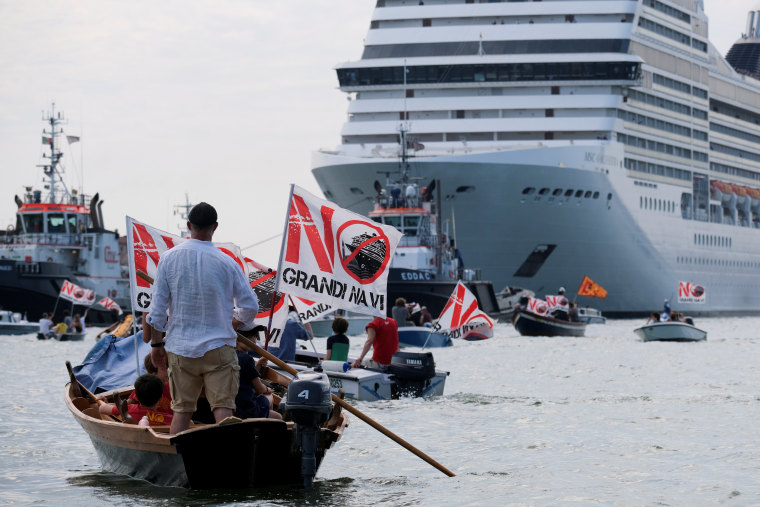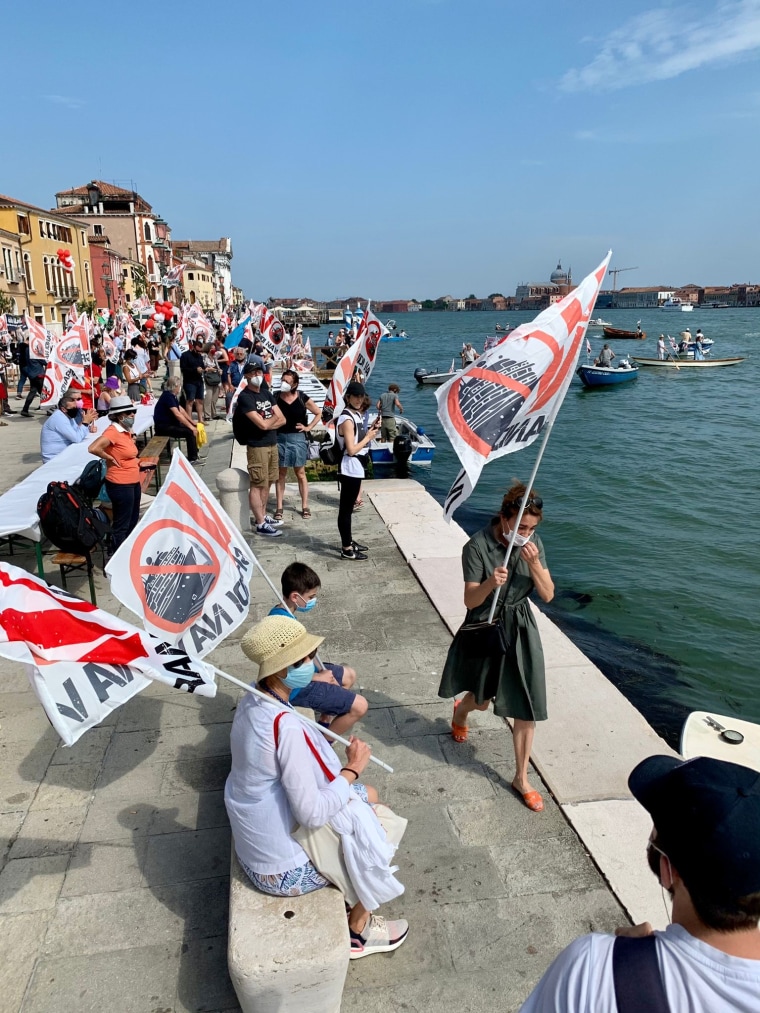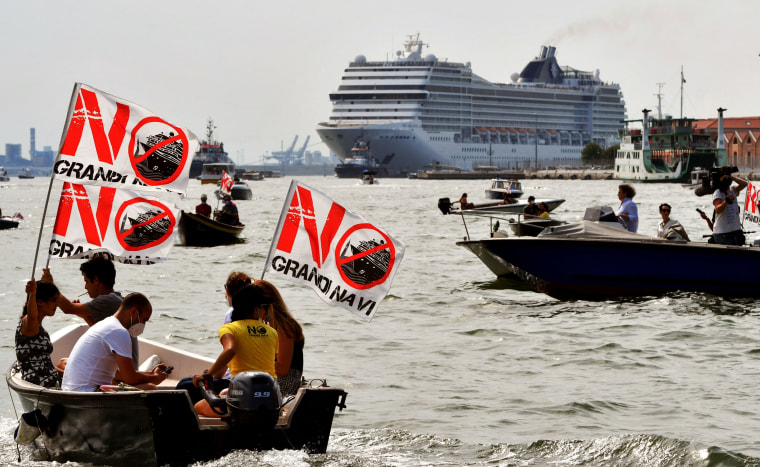VENICE, Italy — For some it was a welcome sight, for others a return to the bad old days.
As the first cruise ship since the coronavirus pandemic began made its way through the heart of Venice on Saturday, it was escorted by triumphant water-spouting tugboats and elated port workers.
But the 92,409-ton, 16-deck MSC Orchestra was also met by a small armada of wooden boats carrying flags bearing the message "No Big Boats" as it traveled down the Giudecca Canal, past the iconic St. Mark's Square and the Doge's Palace.
Hundreds of people also gathered along the canal to protest as the ship left the city en route to Croatia and Greece.
"We can't accept anymore that just for the business of a few, they insult the city in this way," said one of the protest's organizers, Tommaso Cacciari.
"Some say we are the most beautiful city in the world," he said. "We are a very fragile city, a very unique city, and so we can't adapt the city to the cruise ships. If they want to come to Venice, they have to be less polluting, smaller and much safer."

The MSC Orchestra's voyage, the first through Venice by a cruise ship in more than 18 months, reignited a movement that for more than a decade has opposed the passage of the enormous ships through the lagoon because of environmental and safety concerns.
Protesters like Cacciari say the liners are ruining the fragile marine ecosystem and architecture of the city, which is already in peril from rising sea waters. Protesters say that when the cruise ships sail through the Giudecca Canal in the middle of town, they move a lot of water that slowly erodes the canal floor and crushes against the underwater foundations the city was built upon.
"It is a great provocation that a ship has passed," environmental expert Andreina Zitelli, a member of the Venice Environmental Association, told The Associated Press. "You cannot compare the defense of the city with the defense of jobs in the interest of big cruise companies."
But Francesco Galietti, director of the Cruise Lines International Association Italy, said the community wanted ships to return after the pandemic wreaked havoc on the Italian economy.
"We have been asked to come back," Galietti said. "We are happy to contribute to the prosperity of Venice."
The Venice Port Authority said that the cruise ship business accounts for 3 percent of the city's gross domestic product and that around 4,000 jobs depend on it.
Download the NBC News app for breaking news and politics
Before the pandemic, the city welcomed an estimated 25 million visitors a year. In 2019, 667 cruise ships embarked nearly 700,000 passengers in Venice, according to the cruise lines association.
Galietti said the association has been asking the government for years to come up with a more manageable and sustainable solution for cruise ships' access to Venice and the lagoon but to no avail.
Prime Minister Mario Draghi's government pledged this spring to get cruise ships out of the Venice lagoon, but reaching that goal will take time.

The government said that it was organizing bids for a workable alternative outside the lagoon and that the request for proposals should be posted any day now.
But even an interim alternative route to the Giudecca Canal — moving larger ships to an industrial port west of Venice — wouldn't be ready until next year, the Ministry for Infrastructure and Sustainable Mobility told the AP. Building a new port outside the lagoon would take even longer.
Many of the protesters said it is the cruise ship industry that should change and reduce its environmental impact.
"We hope that the Venetian cause will make them rethink their whole approach to the holiday and travel business," said environmental activist Jane Da Mosto, executive director of the nonprofit group We Are Here Venice. "This is one of the places where we have to start now."
Claudio Lavanga reported from Venice and Yuliya Talmazan from London.

